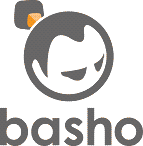Basho Technologies
 |
|
| Private company | |
| Industry | Distributed Systems, NoSQL, Cloud storage software |
| Founded | 2008 |
| Headquarters | Bellevue, WA |
|
Key people
|
Chester Davenport (Chairman), Adam Wray (CEO), Dave McCrory (CTO), Amy Pelly (CFO) |
| Products | Riak, Riak KV, Riak KV Enterprise, Riak TS |
| Website | www.basho.com |
Basho Technologies is a distributed systems company that develops a key-value NoSQL database technology, Riak, and an object storage system that is built on the Riak platform, called Riak CS.
Basho is the developer of Riak, an open source distributed database that offers high availability, fault tolerance, operation simplicity and scalability. Riak Enterprise is a commercial version of the database offered by Basho, the project's sponsor, with advanced multi-data center replication and enterprise support.
Riak is a key value store system that can collect unstructured data and store it as objects in buckets that can then be queried. It's also highly scalable, able to distribute itself over a server cluster and add new servers as needed, while maintaining its own high availability. Riak is written in Erlang, a language that gives a system built-in support for distribution across a server cluster, fault tolerance, and an ability to absorb new hardware being added to the cluster without disrupting operations.
Basho also offers Riak Cloud Storage (CS), an open source multi-tenant cloud storage database, built on the Riak platform, that integrates with private clouds and public clouds such as Amazon Web Services (AWS). It can be used by enterprises to power internal private clouds and by startups with an Amazon-compatible API for their own download service. Riak CS includes large object support, S3-compatible API and authentication, multi-tenancy and per-user reporting, an operational model for adding capacity, and a visual interface for monitoring and metrics.
Riak 1.0 was released in September 2011 and featured secondary indexes, Riak Pipe, Riak Search integration, Lager, and LevelDB support.
Riak 1.1 was released in early 2012 and included numerous changes to Riak Core, a new ownership claim algorithm, Riak KV improvements and MapReduce improvements.
In August 2012, Riak 1.2 was released. Riak Enterprise 1.2 added SSL encryption, better balancing and more granular control of replication across multiple data centers.
...
Wikipedia
